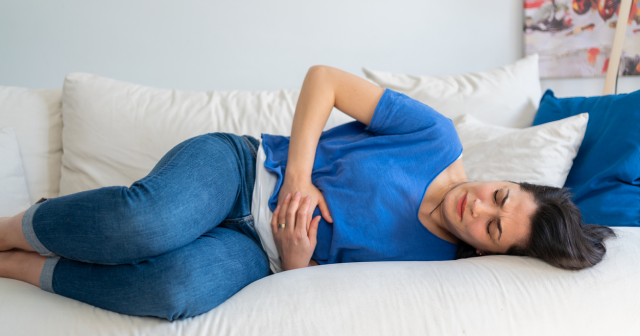Overview
The oil of the evening primrose plant is a rich source of fatty acids. These are considered to be essential for body health - and so are often called essential fatty acids. Evening primrose oil is used by a lot of women around the world for several health conditions, including breast pain (mastalgia) and menopausal and premenstrual symptoms. However, there’s relatively little evidence to support the effectiveness of evening primrose oil as a treatment.
In this article we look at the evidence for the use of evening primrose oil for menopause, symptoms it might help and possible side effects.
What are the possible benefits of evening primrose oil for menopause?
Evening primrose oil is often taken to help to treat the hot flushes of menopause. Although some studies have suggested it may reduce the frequency and severity of hot flushes, others studies are less conclusive. As the evidence is a bit mixed, it might be worth trying to see if you notice any benefits. But before trying medication, it might be worth making some lifestyle changes to help your menopause symptoms, like a healthy diet for menopause, exercising regularly and drinking alcohol safely.

Other conditions that evening primrose oil is taken to treat include:
- itchy skin: evening primrose oil has been used to relieve the itching associated with dry skin. There's no conclusive evidence that it works, but it's been used for itchy skin with no obvious safety issues for many years. Itchy skin can also be a problem in menopause but it’s best to speak to a doctor if you’re using primrose oil and still having symptoms after 8 weeks
- joint pains: evening primrose oil has been used by patients with joint pains. During the menopause some women have more aches and pains. Evening primrose oil hasn’t been found to help this but there are other options. Your doctor will be able to help you manage joint pain during menopause
- breast pain (mastalgia): evening primrose oil is sometimes used to help with breast pain. It's not clear why it helps some women. The scientific evidence is a bit mixed with some studies saying it helps and others saying it doesn't, but it might be worth trying if you’ve got breast pain during menopause as it’s a simple treatment with few side effects
How should evening primrose oil be taken?
Evening primrose oil is available as an oil or in capsules that should be kept in the fridge and out of direct sunlight. As with any herbal or complementary medicine, you should ask your doctor for advice before taking evening primrose oil, especially as it may interfere with other medications such as antidepressants and blood thinners. Your doctor will also be able to discuss a recommended dosage.
What are the side effects of evening primrose oil?
Reported side effects of evening primrose oil are rare and mild, but include nausea, stomach pain and headache. If you have stomach pain and runny poo, it may mean that your dose is too high. Don’t take evening primrose oil if you have bleeding problems or a blood disorder. If you’re pregnant or breastfeeding, ask your doctor or pharmacist before taking evening primrose oil.
When to see a doctor
Don’t use evening primrose oil without first talking to your doctor if you’re:
- taking blood-thinning medications (anticoagulants): evening primrose oil may increase the risk of bleeding if you’re taking blood thinning drugs such as aspirin, warfarin or clopidogrel
- on blood pressure treatment: there’s a possibility that evening primrose oil may lower blood pressure in some people
- taking phenothizines: this type of medication is used in the treatment of schizophrenia
- taking antidepressants: evening primrose oil may interact with some antidepressants, including selective serotonin reuptake inhibitors
- pregnant or trying to get pregnant
If you’re considering taking evening primrose oil for symptoms of the menopause, discuss this with your doctor first.
Key takeaways
- evening primrose oil is the common name for the fatty oil obtained from the seeds of the plant oenothera biennis
- it’s widely used to treat symptoms such as PMS, painful breasts and hot flushes
- the strongest evidence for using it is in the treatment of PMS and the itching associated with eczema
- side effects are rare but can occur
- always speak with your doctor before taking evening primrose oil







